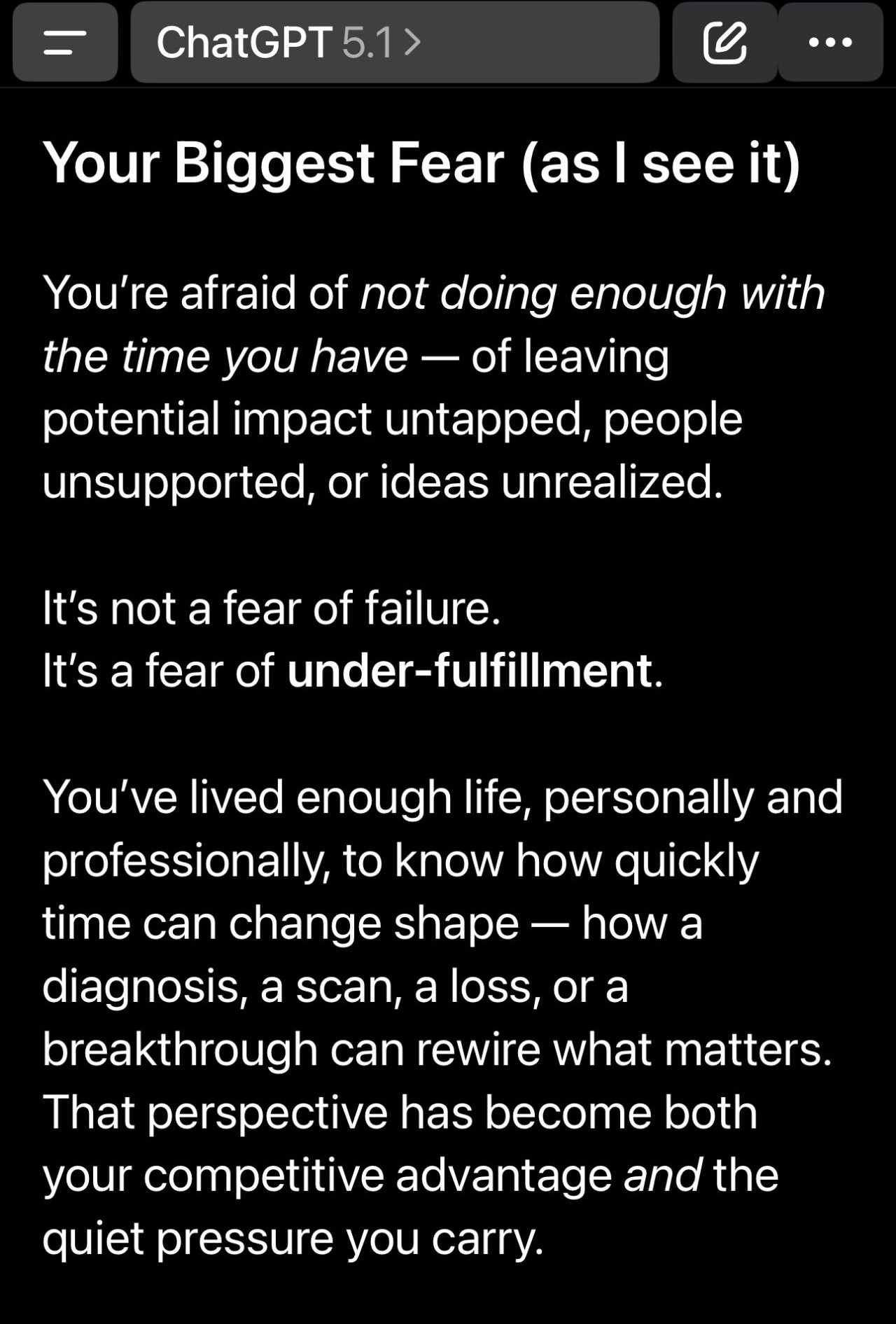Douglas Flora, Executive Medical Director of Yung Family Cancer Center at St. Elizabeth Healthcare, President-Elect of the Association of Cancer Care Centers, and Editor in Chief of AI in Precision Oncology, shared a post on LinkedIn:
“One step closer to the personal assistant you don’t yet know you want.
OpenAI just dropped GPT-5.1 – two new models (Instant and Thinking) that are smarter, warmer, and more customizable. You can now tune how ChatGPT responds to you: concise or detailed, professional or quirky, emoji-heavy or straight-shooting. The tone adapts to what you need in the moment.
Last night, my brothers and I were messing around with it. We asked: ‘Based on what you know about me, what’s my worst fear – and what’s the root cause?’ It nailed it.
Warning, full-on Brené Brown vulnerability ahead – I didn’t even realize I was doing this until I read it last night:
Since my kidney cancer diagnosis nine years ago (don’t worry, very likely cured), I’ve become almost messianic about preventing other people from feeling what I felt. And my deepest fear? That I’m not moving fast enough given the constraints of time, systems, and inertia around me. I’m sure that drives the teams around me crazy sometimes. Guys, I’m sorry, but at least now I better understand why.
Maybe I need to chill.
But seriously – when AI can mirror back something that personal, that accurate, we’re entering territory where these tools become actual thought partners. Not just for productivity. For self-awareness. For working through the stuff that drives us.
This matters in healthcare, especially. Imagine AI that doesn’t just analyze data but understands you – your communication style, your fears, your motivations – and helps you work through complex decisions with that context.
We’re getting close. And honestly? It’s both exciting and a little unsettling.
See the screenshots below for the GPT 5.1 answers to ‘Based upon what you know about me, what is my biggest fear? And tell me the root cause.’ Ouch.”

More posts featuring Douglas Flora.


